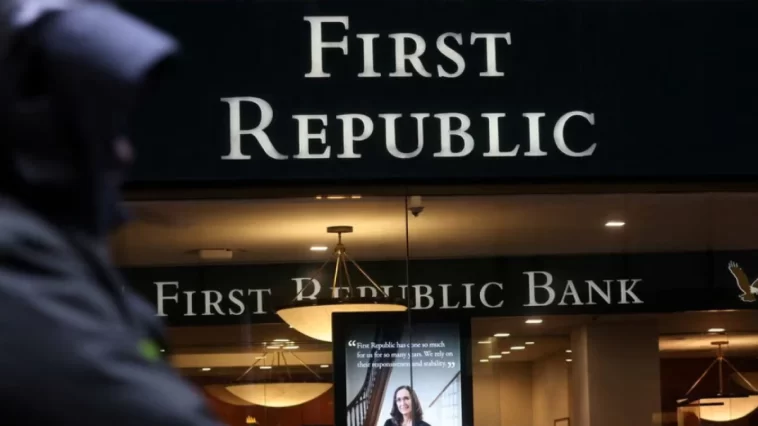Concerns about the prospect of a global financial crisis have prompted major U.S. banks to rescue the struggling First Republic Bank.Large US banks infused $30 billion into the California, San Francisco-based lender on Thursday, just one day after the private lender’s stock plummeted, compelling it to consider a possible sale.
Following the new lifeline for First Republic Bank, market sentiment improved. It occurred just one day after the Swiss National Bank bailed out the major European lender Credit Suisse with a loan of $54 billion.Two other mid-sized US lenders, Silicon Valley Bank and Signature Bank, have recently failed, sparking fears of an escalating crisis. The recent lifelines indicate that there are concerns about the prospect of a worsening crisis.
Following a relief rally on Wall Street in response to the news, Asian equities advanced in the morning session.First Republic Bank stock closed 10% higher following the news of the rescue, but dropped 18% in after-market trading following the announcement that the bank would suspend its dividend.Since March 6, the stock is still down more than 70 percent.
Situation less dire than in 2008
Analysts acknowledged that small and mid-sized banks in the United States are under extreme pressure due to aggressive interest rate increases, but added that the situation is not as dire as it was during the global financial crisis of 2008.Karen Jorritsma, director of Australian equities at RBC Capital Markets, told Reuters that improved regulations have placed banks in a much stronger position.
Jordtsma stated, “I do not believe we are in the midst of a global financial crisis; balance sheets are significantly better than they were in 2008, and banks are better regulated.””However, people are concerned that the risk of contagion is real, and this undermines confidence,” Jorditsma continued.
In the meantime, the European Central Bank proceeded with a 50 basis point increase on Thursday despite the ongoing turmoil on global financial markets. It argued that eurozone banks were resilient and that an increase in interest rates would strengthen their margins.
All eyes are on the US Federal Reserve
The focus now shifts to the Federal Reserve of the United States, which will convene next week to decide on interest ratesAnxiety surrounds the Fed’s action, as it is uncertain whether the US central bank will maintain aggressive interest rates or halt the current cycle to protect banks.
As inflation remains a concern for the world’s most potent economy, the Federal Reserve of the United States will likely raise interest rates by 25 basis points.
Global banking stocks devastated
Recent banking turmoil in the United States has weakened banking equities worldwide, particularly in the eurozone. The failure of Silicon Valley Bank demonstrated how losses in bond-related investments have accumulated as interest rates have been aggressively increased since the previous year.
Also Read | Asian Markets Sink After Silicon Valley Bank Collapse: 10 Points To Know
The inadequacy of Silicon Valley Bank led to the failure of Signature Bank and sparked broader concerns about the impact of interest rate increases on the banking system.




